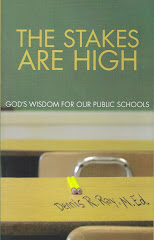In response to the piloting of a no zero program in two of our county schools, I submitted the following letterr to the editor of the Chillicothe (OH) Gazette, in October:
Dear Editor,
During my 30-year teaching career I have witnessed more educational trends come and go than I care to count. Each and every one was touted as the cure for low-performing students, or the surest way to build self-esteem, or the miracle that would help all children achieve to their potential.
The latest of these ‘fads’ seems to have hit Ross County. It is the “no zero policy”. Under this policy the lowest score a student can receive is a 50%. This means that when your child who struggles in a certain course, gives his or her all to prepare for a test or other assignment and earns a 60 or 70% (depending on what is considered a D in your school), they only marginally score better that the student who comes to class, signs his name on the test paper and turns it in with no effort, and is GIVEN a 50%. Through teacher internet websites I have communicated to teachers across the country with this policy and that is the frustration they are expressing.
What has happened to our desire to build strong character in our children? Are we so conscious of state required graduation rates and other dry statistics that we will sacrifice these students’ concept of “doing the right thing” for some institutional rating?
The Gazette article correctly illustrated that three 80% grades and one zero averages to a 60%. For one thing I do not know any teachers who base a quarter’s grade on only four assessments, although there are probably some.
The point is that yes, a zero hurts your grade. But why did the zero occur? School suspension? Truancy? Vacation? The lesson needs to be that there is a price for disobedience and that schools are not here for everyone’s convenience. If we would “do the right thing” as parents and instill strong character traits of hard work and respect for getting a good education into our children, and if the schools will “do the right thing” and build on that demand for excellence and not give in to mediocre efforts, maybe, just maybe we will produce a next generation who know that “doing the right thing” pays off.
Sincerely,
Dennis Ray, retired CHS teacher
During my 30-year teaching career I have witnessed more educational trends come and go than I care to count. Each and every one was touted as the cure for low-performing students, or the surest way to build self-esteem, or the miracle that would help all children achieve to their potential.
The latest of these ‘fads’ seems to have hit Ross County. It is the “no zero policy”. Under this policy the lowest score a student can receive is a 50%. This means that when your child who struggles in a certain course, gives his or her all to prepare for a test or other assignment and earns a 60 or 70% (depending on what is considered a D in your school), they only marginally score better that the student who comes to class, signs his name on the test paper and turns it in with no effort, and is GIVEN a 50%. Through teacher internet websites I have communicated to teachers across the country with this policy and that is the frustration they are expressing.
What has happened to our desire to build strong character in our children? Are we so conscious of state required graduation rates and other dry statistics that we will sacrifice these students’ concept of “doing the right thing” for some institutional rating?
The Gazette article correctly illustrated that three 80% grades and one zero averages to a 60%. For one thing I do not know any teachers who base a quarter’s grade on only four assessments, although there are probably some.
The point is that yes, a zero hurts your grade. But why did the zero occur? School suspension? Truancy? Vacation? The lesson needs to be that there is a price for disobedience and that schools are not here for everyone’s convenience. If we would “do the right thing” as parents and instill strong character traits of hard work and respect for getting a good education into our children, and if the schools will “do the right thing” and build on that demand for excellence and not give in to mediocre efforts, maybe, just maybe we will produce a next generation who know that “doing the right thing” pays off.
Sincerely,
Dennis Ray, retired CHS teacher
.jpg)
